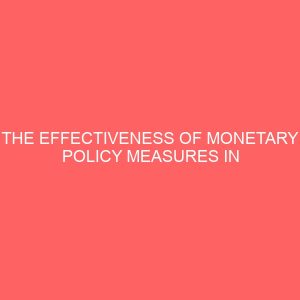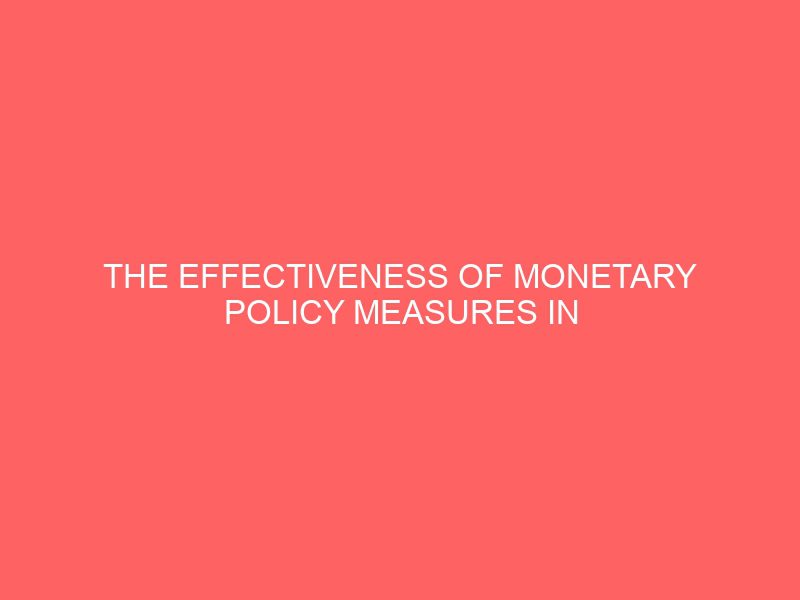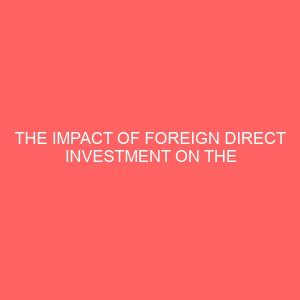Description
Abstract
Over the years, Nigeria made conscious and determined efforts to attain a high level of economic growth and development (social and economic transformation of the economy) so far. The nation has had four national development plans in which varying emphasis on development goals and objectives were articulated and pursued in order to attain the development goals, several policy measures were adopted including monetary, fiscal, exchange control, income and prices policies. The measures adopted were changed from time to time to reflect the changing economic environment and circumstance. This work focused on one of the policies which is monetary policy and this examined the efficiency of the policy measures. The basis of judging this is the achievement of the stated policy objectives and the sensitivity of economic objectives to target variables such as inflation control. The date used in the analysis of evidence came from central bank of Nigeria statistics from 1990-2007 record also indicates that inflation has been a very crucial problem in the Nigeria economy, and its causes and effects have been also in draying degree ranging from inefficiency in agricultural productions, high dependence on imported raw materials low supply in consumer good etc. of the monetary policy tools examined shows that open market operational has been dwindling from prospective participants largely because the treasury bills rates are no longer market determined, the rediscount rate are effective policy tools it has been noticed that the control of financial systems credit has been proved most effective. The research therefore reached the conclusion that monetary policy is a means to an end and not an end in itself. The instruments are therefore mere catalyze that accentuate the pace of economic development. It was also observed that the effectiveness of monetary policy is controlling inflation party depends on the instruments and the prevailing economic environment. In view of the problems inherent in the Nigeria monetary policy the researcher therefore recommend among other thing. 1. The review of the liquidly and cash reserve rate 2. Co-ordination and consistency among differing objectives 3. Flexibility in the monetary policy to counteract the establishing effects of exogenous variable and steer the economy along the desired part of socio- economic progress. 4. Increase in the price of securities in order to develop the money market so that monetary policy tools like open market operation techniques can be implemented effectively. 5. Monetary and fiscal polices should be complementary and countervailing in order to achieve that stated economic objectives. The research concluded by saying that since the pursuit of economic objectives is not achieve by monetary policy alone, it therefore does not mean that monetary policy has failed in its entirely.








Reviews
There are no reviews yet.